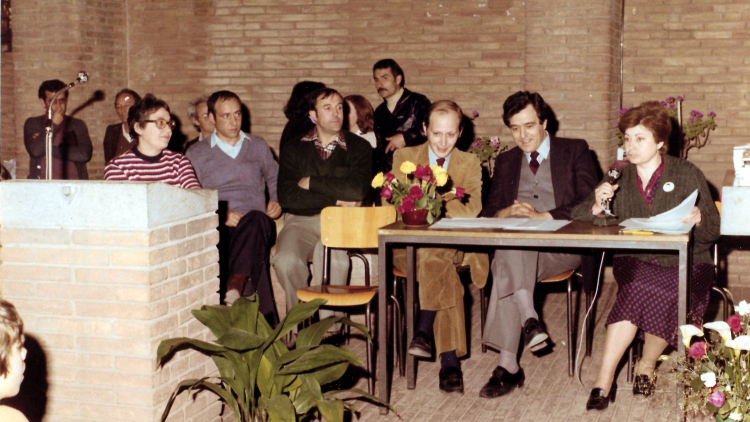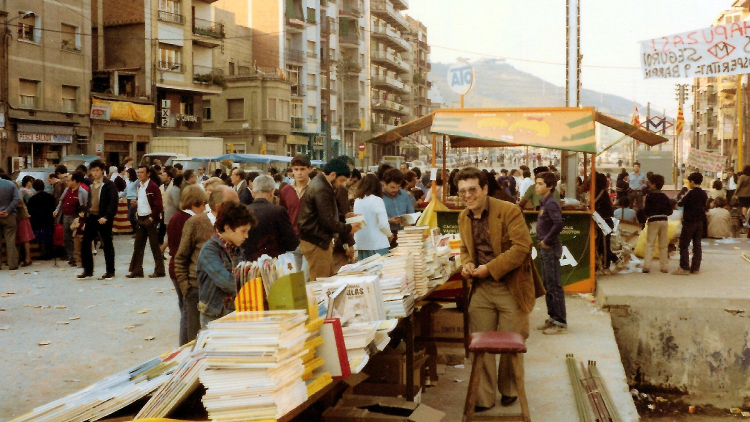The new democratic culture
The start of a new democratic era led to the people’s reappropriation of the streets. Leaving behind the years when the Franco regime monopolised exclusive use of the streets. Having public spaces available felt like a liberation and numerous initiatives capturing the spirit of the new times flourished.
In the streets, the new democratic culture found its vital element. District municipal councils proposed taking culture out of the libraries, thus making the city streets more democratic environments.
Nou Barris’ tradition of associations ensured initiatives sprouted up everywhere. With the occupation of the asphalt plant and the constitution of the Nou Barris Cultural Centre, as a municipal civic centre run by local residents, the people of the district had a space for festivals and culture on a large scale.
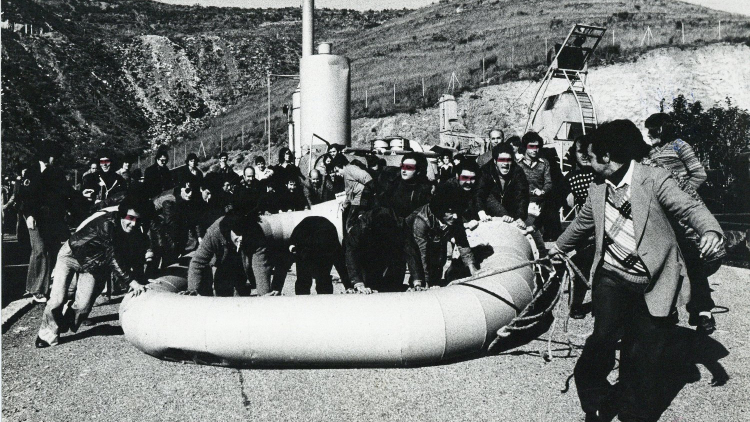
The Nou Barris Cultural Centre is the most representative example of local struggles. Following entry into and the occupation of the asphalt plant on 4 and 5 June 1977, this building was turned into a cultural centre, a symbol of the triumph of the democratic struggle. (Author: Miquel Vallès, AMDNB)
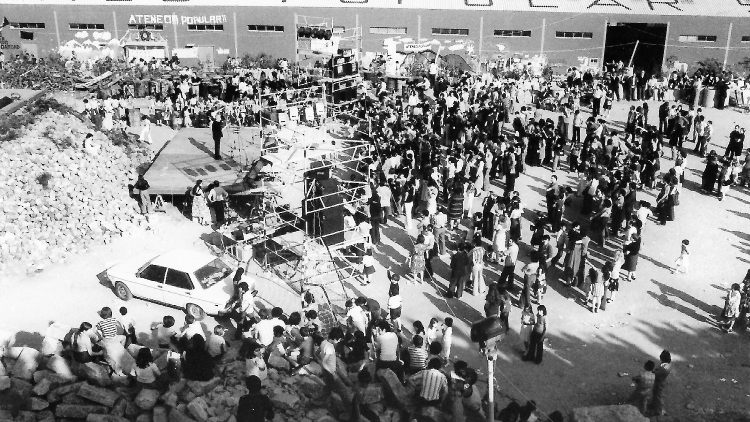
Thanks to the efforts of the residents’ movement, the Nou Barris Cultural Centre became established as a first-rate cultural facility and one of the main driving forces of cultural, artistic and popular action in the district (Author unknown, Roquetes-Nou Barris Historical Archives)
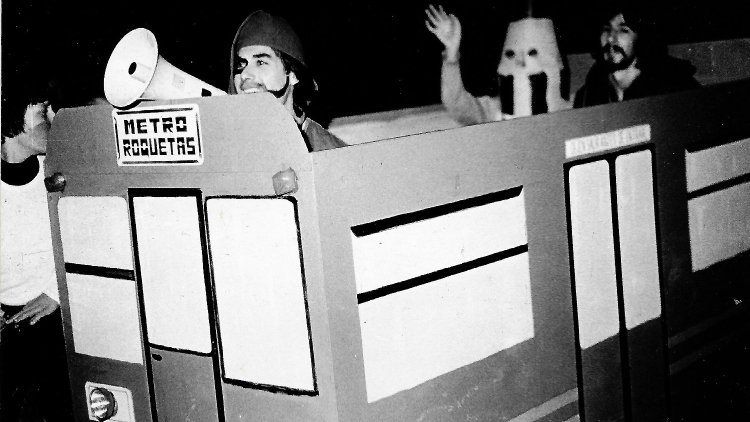
The first democratic City Council was behind the return of Carnival, or ‘Carnestoltes’, as a civic and popular festival to fill neighbourhood streets. In February 1982, one of the parade groups at the Nou Barris Carnival called for the metro to come to the district. (Author unknown, Roquetes-Nou Barris Historical Archives)
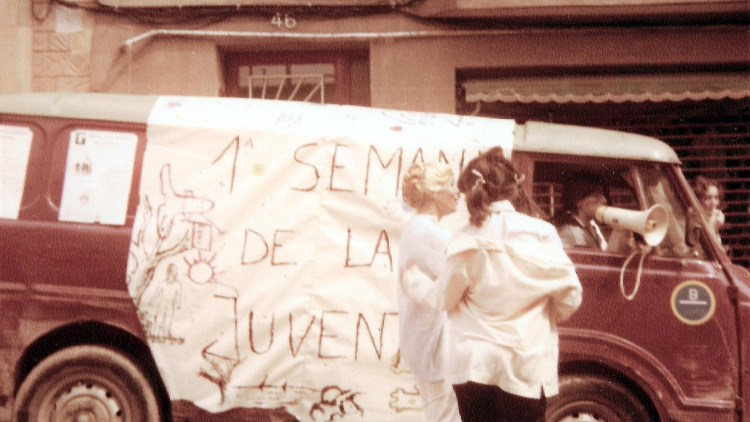
The innovative Councillor’s Office for Young People at Barcelona City Council, headed by councillor Enric Truñó, was in charge of encouraging young Barcelona residents to get organised and hold popular activities in the city’s neighbourhoods. An example of this new policy was the First Youth Week, held in 1980. (Author unknown, Roquetes-Nou Barris Historical Archives)


